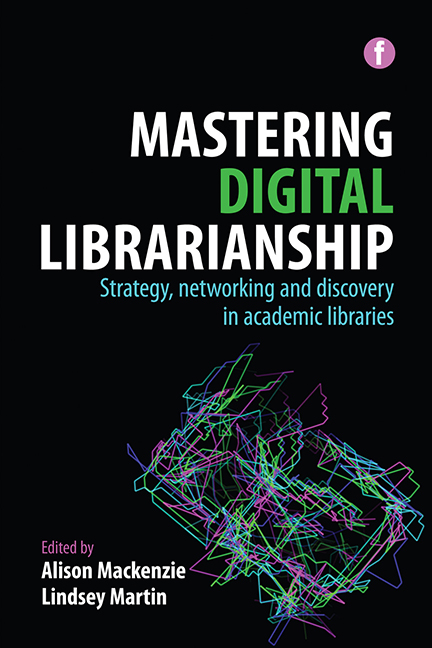8 - ‘You might also be interested in . . .’: improving discovery through recommendations
Published online by Cambridge University Press: 13 September 2022
Summary
Introduction
‘There aren't enough books in the library’ is a common student complaint. With undergraduate library research largely driven by reading lists, the frustrations of unavailable titles and long reservation lists are a big source of student dissatisfaction and this is often reflected in their responses to the UK annual National Student Survey. As some UK students pay more for their university education, their expectations rise accordingly and this means that libraries are constantly being challenged to meet the evershifting demands of their users. As Bevan points out, ‘students will begin to wonder why, when they pay up to £9000 in tuition fees a year, they cannot access the books they have been told are essential’ (Bevan, 2012).
In their White Paper, Capita stress that ‘innovation is the key to meeting and exceeding student expectations’ (Capita, 2013) and one of the ways that libraries can innovate is by offering recommendations. By making the most of technology and using the data at their fingertips, libraries can offer new routes to resource discovery and reveal underused or hidden library materials through book recommendations. These kinds of recommendations, generated by the tracking of reading habits and purchases, are now a common feature on commercial and social websites such as Amazon, LibraryThing and Goodreads, but this is a trend which is still relatively rare in UK academic library catalogues. However, universities and colleges have access to a wealth of activity data that can give insights into user behaviour and help to develop these kinds of services.
With a primary focus on continuing work at Mimas, The University of Manchester, to explore how library circulation data can be aggregated and used to support research, this chapter examines how institutions in the UK are now exploiting their activity data to enhance discoverability and enable wider use of resources by surfacing and recommending library resources that users might not have ordinarily found. It will also attempt to answer whether book recommendations in library catalogues can help to alleviate student frustrations around finding resources in the library.
Recommendations and activity data
Activity data is the record of any user action (Jisc, 2011) and the powerful potential of this data to support personalized search is well established in the commercial sector.
Information
- Type
- Chapter
- Information
- Mastering Digital LibrarianshipStrategy, networking and discovery in academic libraries, pp. 139 - 156Publisher: FacetPrint publication year: 2014
